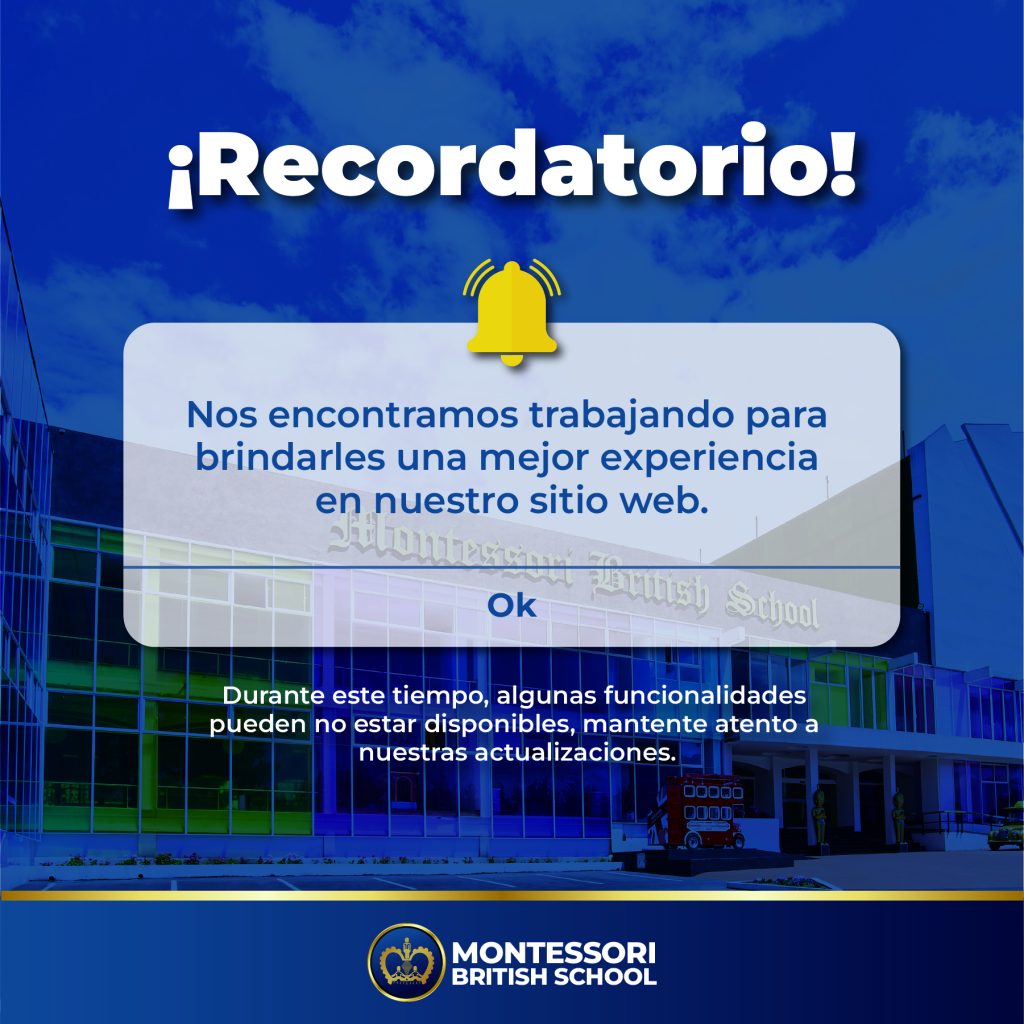
All parents look for, cultivate, and defend the joy of their children, even when the key issue resides in the smallest of things and in the good attitude we have towards everyday challenges and obstacles.
«Es por eso que Claudia Díaz, rectora del prestigioso colegio Montessori British School, en Bogotá, nos explica, desde su experiencia como educadora y líder, la posibilidad de aprender a ser feliz: algo que refleja día a día el colegio que dirige. Con el apoyo de padres y docentes, se han identificado y puesto en práctica cinco claves para la felicidad.»
1. You do not control what happens, so control how you feel
Claudia affirms that this is the first pillar to be happy. Both children and adults experience the feeling of helplessness in face of what happens around them daily, but what is important is that the child learns to assign meaning to what happens and, based on that, that they experience emotion. Claudia maintains that teaching children to give each situation the importance it deserves is very important.
Of course, this instruction cannot be achieved quickly. It demands constant work, supported by activities at school and at home. At the Montessori British School, class topics are used to highlight the ability to calmly face a conflict and avoid causing harm to oneself or others.
2. We are all born smart: the difference lies in the training
In the school environment, phrases such as "I'm really bad at math" or "I definitely can't spell" are often heard. Claudia Díaz knows this situation firsthand, and is always ready to tell students that the difference between a person who easily overcomes academic challenges and one who does not reside in the interest in learning something new, the amplitude of practice, and the effort invested in it.
The importance of this pillar lies in the empowerment of students, who, instead of feeling like victims of a situation, begin to believe in themselves and their abilities to learn. At the Montessori British School, students recognize that in every new knowledge or endeavor there is a challenge, and corroborating that famous people who went down in history also overcame obstacles motivates them to focus on their goals.
3. There are no problems, but only challenges
Instead of thinking of a solution to a problem, the students at the Montessori British School know that, in order to achieve a goal or overcome a difficulty, they must go through a process that will strengthen them intellectually and psychologically. And as the challenges change over time and become more complex, it is important that. as parents and teachers, we allow children to face their small difficulties and gradually grow stronger until they acquire the necessary skills for the real world.
4. Happiness is not a destination, but a pathway
If happiness is considered as a destination, daily life becomes a series of steps in which happiness is not present and is postponed. Instead, at the Montessori British School, we teach that happiness is involved in every step and stair of the way. As parents, says Dr. Díaz, we can help identify those happy moments by asking kids every day about three happy moments they've experienced. In a short time, in their daily routines, children will be living and recognizing those moments of happiness.
5. Focusing on gratitude as the most straightforward path to happiness
It is impossible to safeguard children from adverse situations: that is why it is important to offer them tools that allow them to overcome those moments of difficulty. At the Montessori British School, students learn to be grateful towards their parents, life, and all the education and social life opportunities they have at school. They thus recognize the importance of focusing on the feeling of gratitude and not on the sadness or anger they may feel at times.



